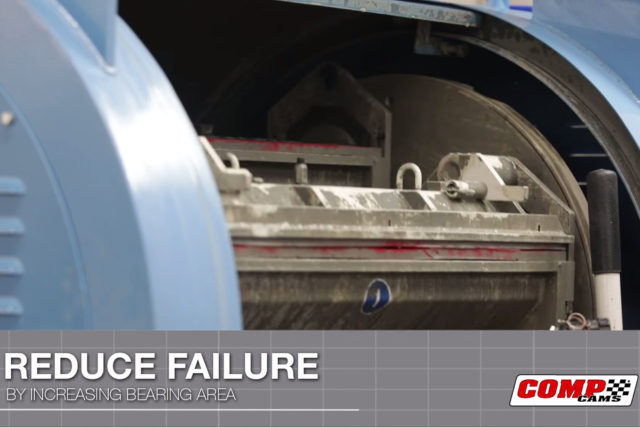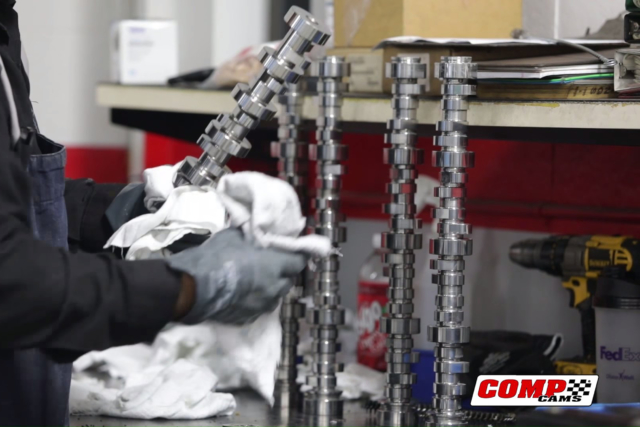Just a few short weeks ago we brought you a primer from the SEMA Show on Comp Cams‘ newest machining process, dubbed Micro Surface Enhancement (MSE). Now we have a deeper dive into the subject with Comp’s camshaft guru, Billy Godbold, who takes over the Comp video studio to detail exactly what Micro Surface Enhancement is and what it does for you.
If engine machining (or metal machining in general) is new to you, think of a fresh surface as a series of peaks and valleys, or like a mountain range, as Goldbold explains. Due to the simple concept of how metal parts are machined, it’s virtually impossible to avoid this: the cutting bit’s surface must be small to achieve a fine finish. Too small and it doesn’t effectively remove the material, while a too-large bit would remove large chunks of material on each pass and be unable to properly prepare the surface.
This is where MSE comes into the picture. Developed over the last several years in Comp’s Memphis skunkworks, the treatment is being applied to Comp’s newest LS camshafts today, and has a wide range of potential uses in the future. So how does it work?
“What we’re trying to do is take the mountain range and radius off the top without getting all the way to the bottom,” says Godbold. “It’s just a way of trying to improve the surface.”
Waves in the source material caused by traditional belt-style polishing create high pressure areas, which are not wanted, and Micro Surface Enhancement reduces that concern.
By “knocking off the peaks”, so to speak, the end result is a part that has far more bearing surface area, which reduces part failures by reducing load as that load is spread across a far larger area.
He also discusses traditional polishing processes like belt-polishing, micro-peening, electro-polishing, and REM polishing, then tackles each one’s features, benefits, and downfalls and how they affect the camshaft’s machined surface.
One statement he makes is quite telling: “Every failure starts microscopically before it goes into a macroscopic failure. If we can make the microscopic load small, we’ll have less failures microscopically, and they can never propagate into macroscopic, or big-time failures.” The Micro Surface Enhancement process helps them reduce these failure points.
This is a fascinating look into camshaft machining processes and how Comp Cams has been in search of the solution to a problem most of us likely didn’t even realize existed.



















